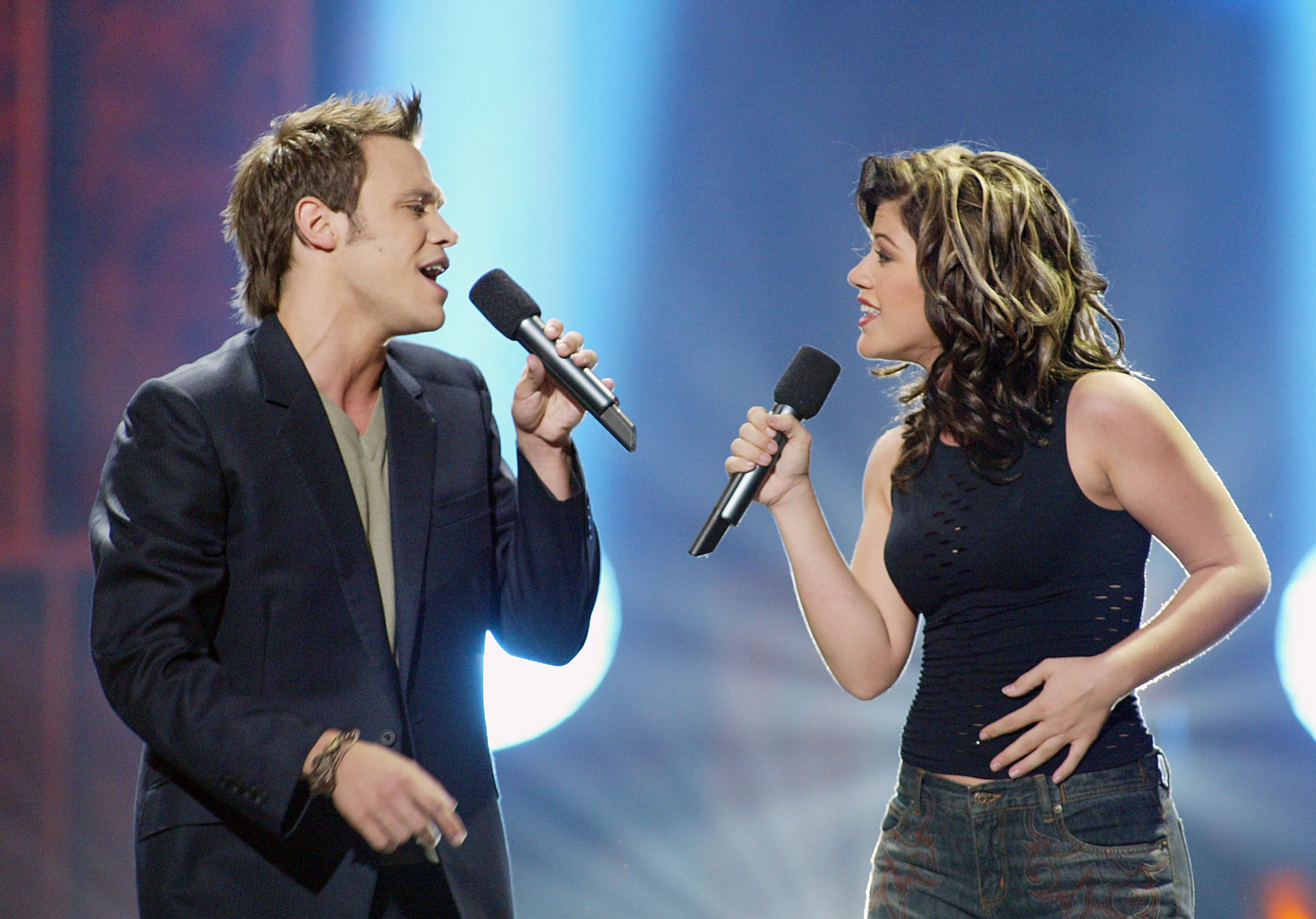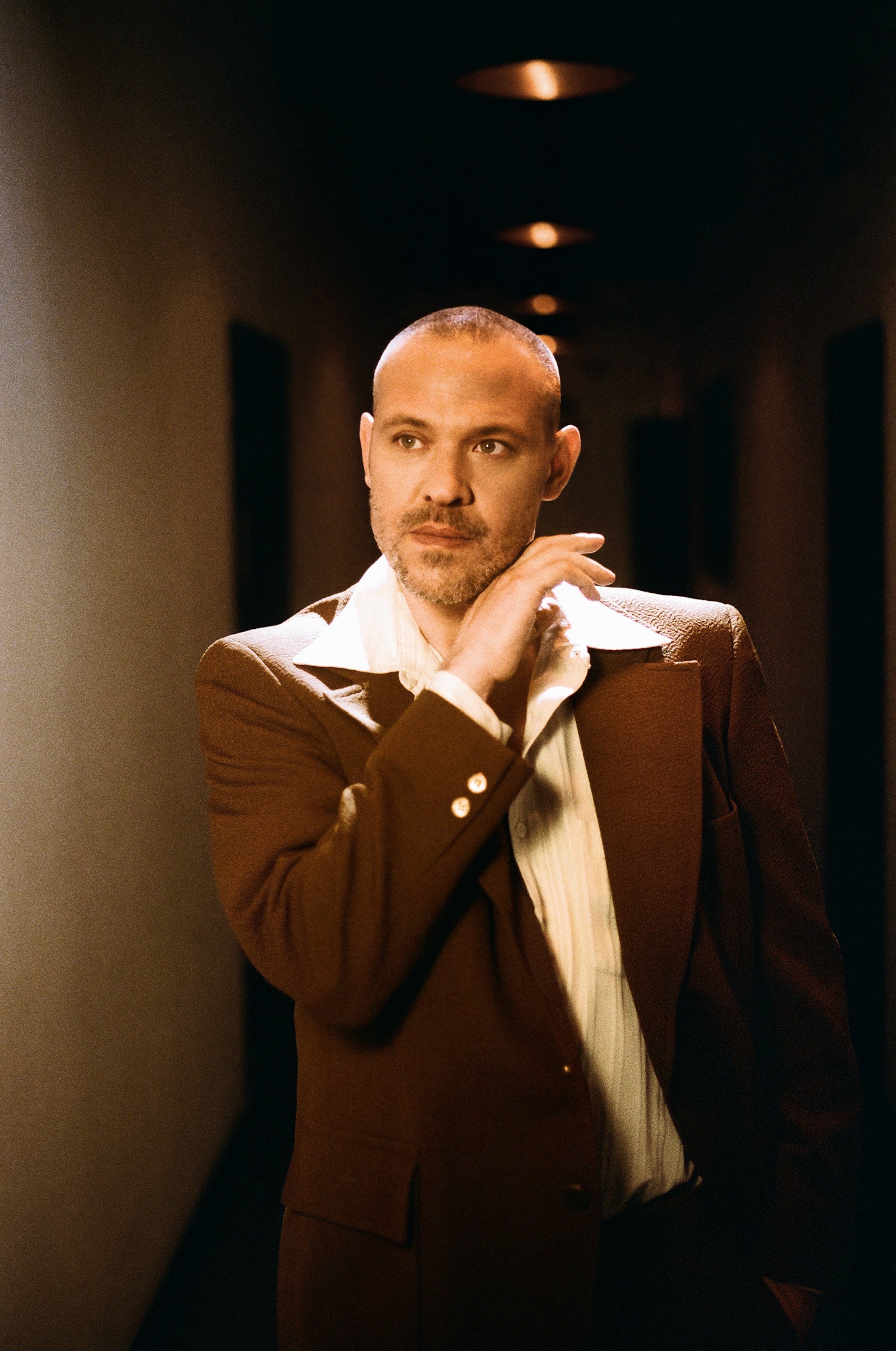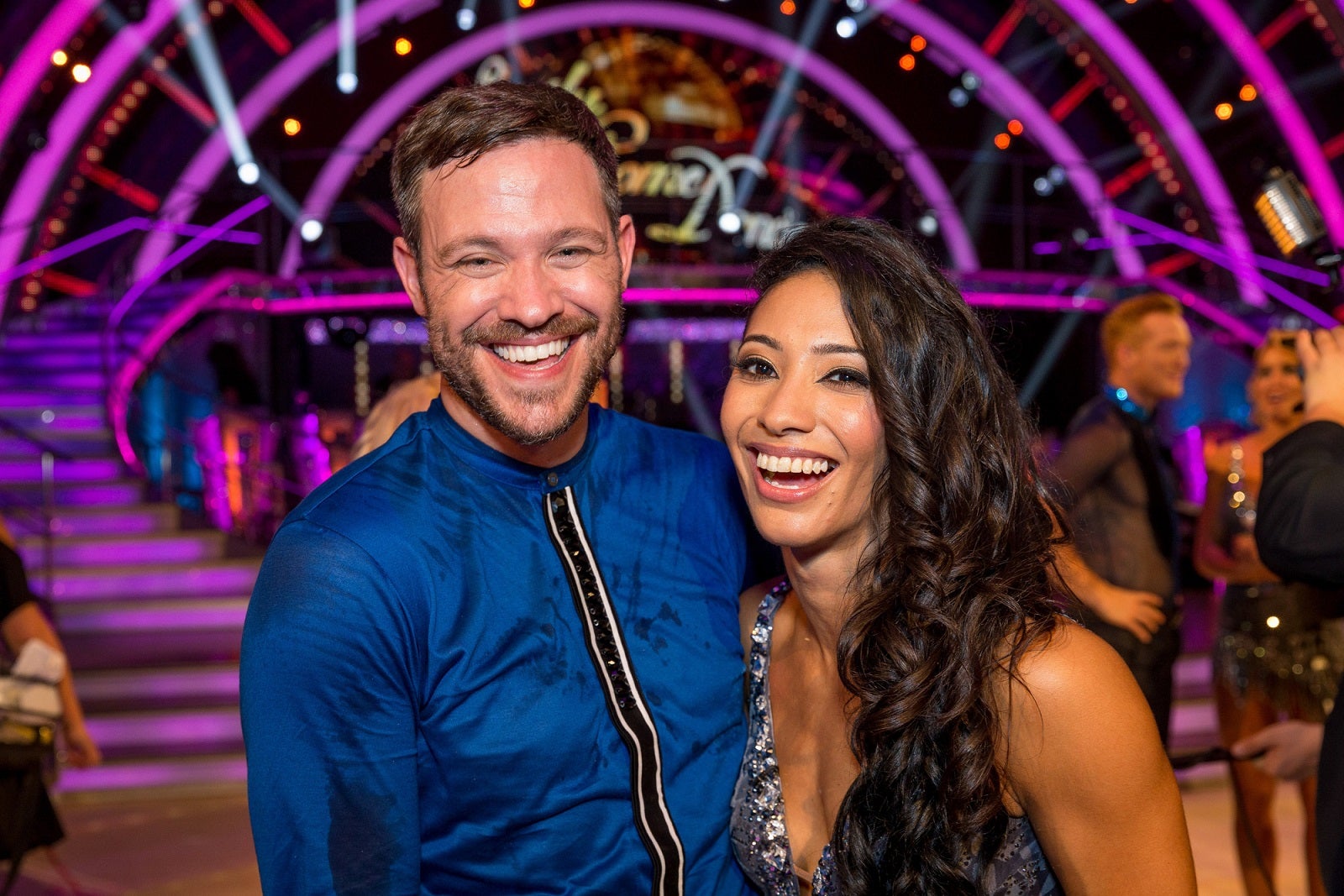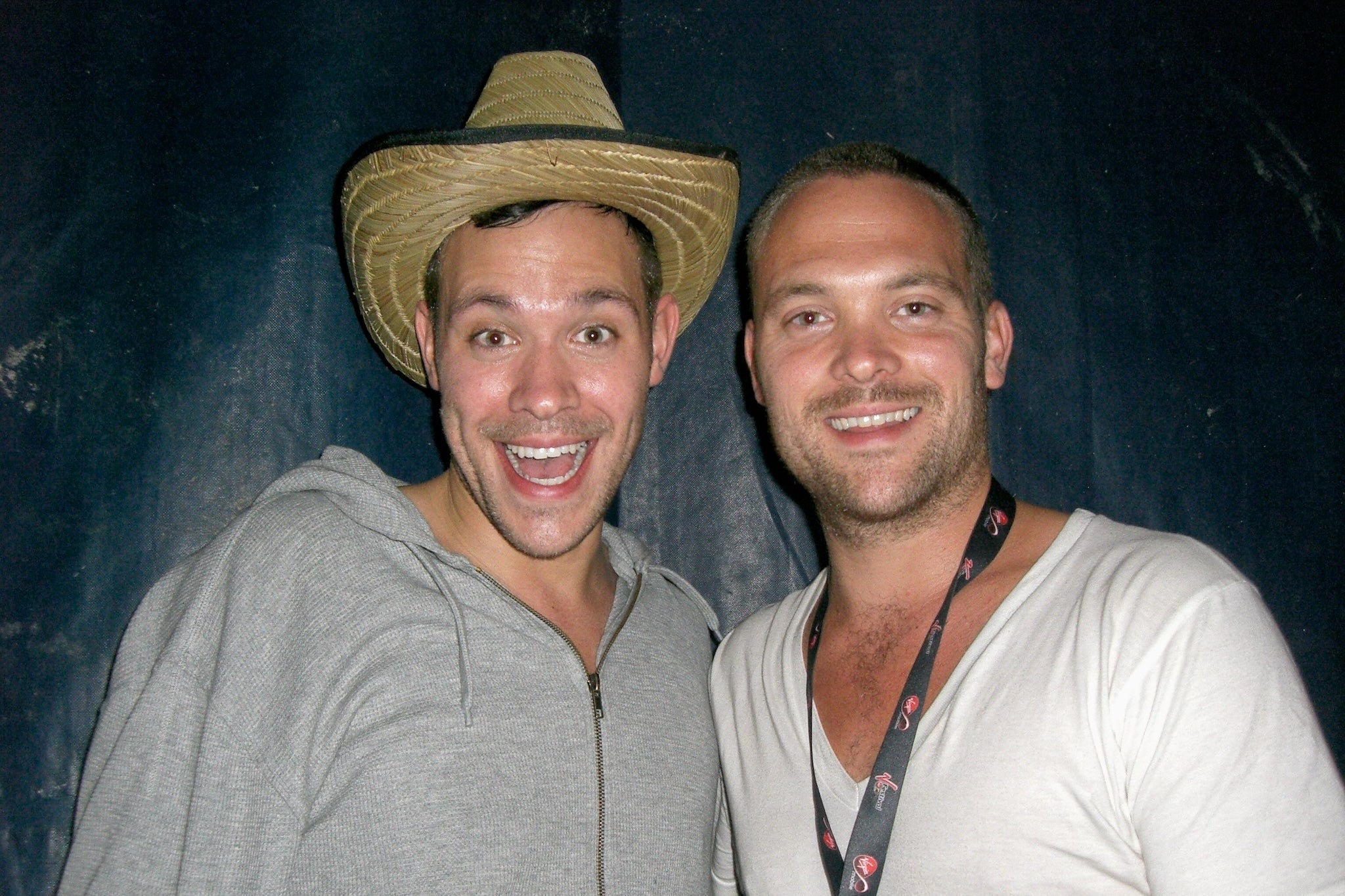Will Young has told a lie. Over the last few months, the 45-year-old has appeared on chat shows and given interviews telling everyone that his new album, Light It Up, is a record of joyous, fun pop. “It’s false advertising,” he admits when we meet in a restaurant in London. The title track, he argues, is uplifting, “and I suppose I just decided to brand it that way”. He laughs. “I don’t mind. I want it to sell.”
Given that Young has worked as a pop star for over 20 years now, he understands the power of a good narrative. Still, Light It Up, his ninth album, doesn’t need it. Filled with glassy synthesisers, delicate melodies and chilled dance beats, it’s familiar sonic territory – and he seems to feel right at home. He’s proved he’s good at it, too. Ever since Young, now 45, won Pop Idol in 2002, he has slalomed the low expectations placed on TV talent show winners. His distinctive voice – soulful and laced with a boyish vulnerability, and showcased on genuinely affecting Top 10 hits such as “Leave Right Now”, “All Time Love”, “Changes” and “Jealousy” – has helped Young become one of the UK’s most beloved musical figures. To call him a national treasure would not be too far a stretch.
Aiding this is his well-known affability. Warm and approachable, with a wide grin that stretches across his face, Young may just be the nicest man in pop. The day we’re scheduled to chat, he’s running late due to traffic. When he does arrive, dressed in a loose black Issey Miyake pleated jacket and trousers, he’s all apologies. He has an appointment for a dodgy shoulder, which will cut our time together short, but assures me that we can catch up the following week.
Young’s charm, along with his talent, is what helped him win over the millions of people who voted for him during Pop Idol. Following his win, however, a tabloid newspaper threatened to out him as gay, forcing him to come out publicly only weeks later. In 2024, we’re lucky to have a number of prominent and explicitly gay artists, including Olly Alexander, Troye Sivan and MNEK, but in 2002 Young was the outlier. “I was a little bit of an island,” he says. “But I was probably the right person for that time. I’m not cutting-edge. You could take me home to your mum.”
That said, his stealth boy-next-door approach didn’t make being openly gay in pop during the early ’00s any less isolating. “There were difficulties, but I think because those things were so normalised at the time, I just thought ‘That’s what happens,’” he says now. “For example, someone saying that I should try not to talk about boys because obviously people don’t want to hear that. Or someone might pitch a video with me and a girl, even though I’m openly gay. It’s bizarre, but that’s what happened. How ridiculous to think of that now.”
Things shifted as rights for LGBT+ people in the UK improved. “When you could report homophobia as a hate crime, it was a big deal. That’s when it began to change, because people had to, legally,” he says. By then, Young was already an established figure on the UK charts, with several multi-platinum albums and nine Top 5 hits. Despite this, he struggled making pop music. “I never liked ‘Leave Right Now,’” he says of the weep-worthy ballad, his second-biggest single to date. “I thought it was s***.”

Never one to abide by other people’s rules, whenever possible Young avoided working with producers who felt too obvious. “It was partly contrary, but if I worked with someone from The Art of Noise who had worked with Annie Lennox and Grace Jones, that felt more interesting,” he says.
That changed slightly with 2011’s Echoes, a record that set the course for the rest of his career. The result of a partnership with electronic music savant Richard X, the album’s atmosphere of sophisticated synth-pop and aching melancholy gave Young his third No 1 record. But while he’s released music since then, the years that followed Echoes have left him feeling lost. “I think I have felt unsure about what I do as I get older,” he admits. “I didn’t know what I was. Like, do I just turn up to things where people shout at me to sing ‘Evergreen’, until I die? It did get to that stage.”
He explored other creative avenues, including writing (he is the author of two books), podcasting, and acting, starring in the film Mrs Henderson Presents alongside Dame Judi Dench in 2005 and on stage in Cabaret in 2013, where his role as the MC saw him nominated for an Olivier award.
Enjoy unlimited access to 70 million ad-free songs and podcasts with Amazon Music
Sign up now for a 30-day free trial
Enjoy unlimited access to 70 million ad-free songs and podcasts with Amazon Music
Sign up now for a 30-day free trial
Nevertheless, when Young signed up for Strictly Come Dancing in 2016, his mental health was bad. Surprisingly, given his candour elsewhere, he won’t discuss the current scandal surrounding Strictly. The BBC dancing competition is currently in the spotlight following multiple allegations of abusive and inappropriate behaviour behind the scenes, with two of its professional dancers, Graziano Di Prima and Giovanni Pernice, having been dropped from the show ahead of its return this autumn.
Speaking on the podcast How to Fail with Elizabeth Day in May, Young said that his own experience on the show was, overall, good. He was excited about it. The problem was, he said, that he was severely unwell, suffering from agoraphobia and having near-constant panic attacks. After three weeks, he pulled out of the competition and, following a breakdown, was diagnosed with post-traumatic stress disorder, which he says stemmed from his childhood experience at boarding school. This led him to undertake years of therapy, as well as visits to a shaman to heal. “She used to work in publishing,” Young says now. “Lives in Wandsworth. Very posh.”
In 2020, Young’s twin brother Rupert died by suicide after struggling with alcoholism and mental illness for decades. It’s something he avoids talking about today, but he did make a documentary about it – Will Young: Losing My Twin Rupert – in 2022. It’s an unflinching but compassionate examination of what it’s like when a loved one is living with alcohol addiction. “There weren’t really that many times when I resented him,” Young says in the film. “Now, a year [after his death], I just feel very grateful that I got 42 years with him.”
In 2023, Young starred in Simon Stephens and Mark Eitzel’s one-man play about a brother grieving for his sibling, Song from Far Away, to critical acclaim. It was a life-affirming experience even if the subject matter was intense. The play also helped him reconsider his relationship with pop music, and led to the recording of Light It Up. “I know we’ve established that I’m selling it on false pretences,” he says with a wry smile, “but if we brush over that, what I’ve realised is pop is quite fun. I just thought, why not have a laugh?”

To his credit, Light It Up is the most carefree Young has sounded in years. The title track is indeed celebratory, its horns punctuating the song’s life-affirming message, while “Feels Just Like a Win”, “Talk About It” and “Everything But You” see Young draped in the same sorrowful but classy synthesised sound as we heard on Echoes. There are hints of The Police on “Falling Deep” and “Me Without You”, where guitars and hand-clapping percussion introduce a jolt of electricity.
On the woozy, after-hours meander of “Midnight”, Young peers inwards, contemplating middle age: “Texting every ex, trying to get my fix/ Why does no one tell me that they are married?” he sings. “Looking in the window at my reflection/ How did I suddenly get so old?”
Does he worry about ageing? “I’m loving being older. But as a gay man, it’s bizarre how people respond to you. You’re put in a category: now I’m a ‘daddy’. It’s like, ‘Good, I’m someone’s fetish.’ You don’t feel seen as someone’s fetish. To me, it doesn’t feel right.” He laughs. “But on the other hand, I’ll take it. Needs must.” That said, Young admits he’s never had a good encounter from a dating app. “You match with someone on Hinge and no one replies,” he says, eyes rolling. “Or you don’t reply. Or you chat for a day. Send a ‘hahaha’ and then everyone is bored.”

He feels that, unlike dating, pop has become more age-agnostic, though he wishes celebrities would be more honest about the realities of getting older. “You know, I’m 3st heavier than I used to be, but no one talks about that,” he says. “In the world I’m in, and maybe in the space that we occupy, no one talks about it. It’s just quite nice to talk about looking in the mirror and looking old and not feeling attractive.”
In fact, he finds the way his fellow celebrities perpetuate the illusion of perfection damaging. It’s partly why he insists on such candour when it comes to discussing his own life, and his experiences with PTSD and depression: “I do regret saying I had a porn addiction, though. I think it just gave the Daily Mail a wonderful headline to run with. That was a mistake.”
I do regret saying I had a porn addiction, though. I think it just gave the Daily Mail a wonderful headline to run with
Something Young doesn’t regret opening up about is the abuse he suffered as a boarder at prep school. For a while, he wanted to make a documentary about it, “but I just don’t think people wanted to watch a film about the abuse of posh boys”, he says. “It’s a shame, because if you look into the system on a sociopolitical level, it’s very interesting. For example, the fact that corporal punishment still went on for another 12 years in private schools, even though it was banned in state schools in 1986. Then there’s the cover-ups. It’s no different to the cover-up of abuse in any other institution.”
Part of the problem, he adds, was that people weren’t interested in abuse that was primarily violent. “It’s a bit like Top Trumps – people want sexual abuse, or they don’t care. But the climate of violence was unbelievable: kids having their heads smashed against metal railings, children being thrown downstairs, kicked in the stomach. Drunk teachers. It was hell.”

It’s something he won’t ever stop talking about. “I said to my former prep school, ‘If you don’t pay for my treatment for trauma, I’m going to just keep on talking about this.’ Even though I sent them a lawyer’s letter, which they didn’t reply to for a whole year, I was like, ‘Fine, but I will never shut up about this,’” he says. Still, he doesn’t want the abuse to be his story: “It’s just part of it. But it’s probably the same with how it was to be gay in the 2000s as a pop star, and generally as a gay man. And the same with mental health. I love talking about it. I find it very liberating.”
This sense of freedom has spread into his music career, too. “I realised that I’m not beholden to it,” he says. “I think it’s important, and this applies to people in all walks of life, to know that you can stop. My identity is not being a pop star.” He grins, his smile reaching his eyes. “With that said, I am quite enjoying it now.”
‘Light It Up’ is out on 9 August via BMG

